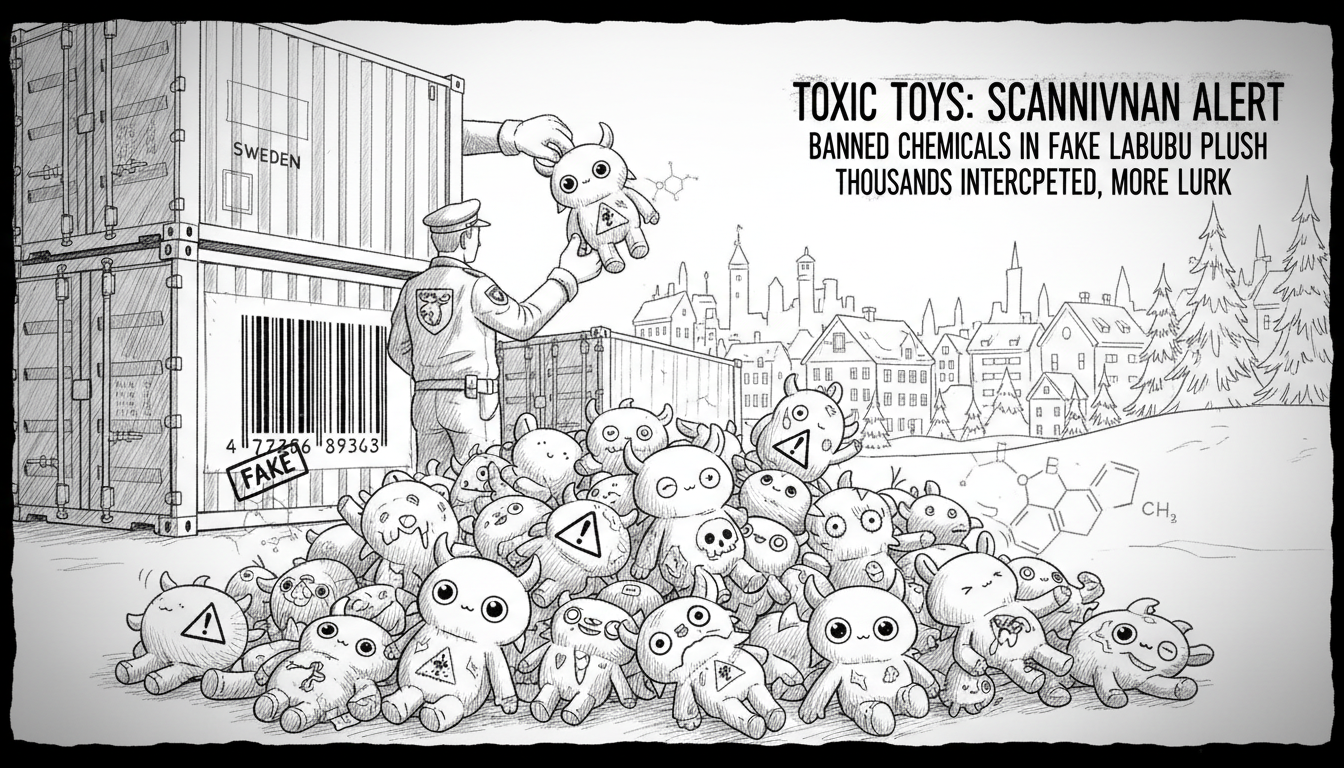The popular plush toy Labubu has become a major favorite among children this year. Social media influencers opening these toys online created massive hype. Limited releases drove prices as high as 1000 SEK (approximately $100). Some Swedish schools banned them after they became status symbols causing social divisions.
A counterfeit market quickly emerged with copies called 'Lafufus.' Authorities in the UK and US previously warned these fakes could be dangerous. Now Swedish chemicals inspectors confirm those fears.
The Swedish Chemicals Agency found high levels of phthalates in five of seven counterfeit toys tested. These substances have been banned from toys in Sweden and the EU for over twenty years.
'These chemicals are endocrine disruptors and reproductive toxins,' said agency specialist Frida Ramström. 'Long-term exposure could harm people's ability to have children.'
The dangerous substances don't stay trapped in the plastic. They leak out and settle in household dust. This creates health risks that can persist for years.
Should consumers discard suspected counterfeit Labubu toys?
'I believe people should get rid of them,' Ramström stated. 'They can be disposed of with regular household waste.'
Tests on two genuine Labubu products showed no dangerous substances.
The Swedish Consumer Agency also warns counterfeits pose serious risks to young children. Investigator Marlene Gustavsson explained, 'We've seen parts like feet and hands detach. A child could put these in their mouth and choke.'
Swedish Customs has stopped over 5,300 counterfeit Labubu toys from entering the country. They were intercepted either for being copies or failing product safety standards.
'We see no signs this trend is decreasing,' said customs operations expert Per Holgersson.
Authorities advise purchasing from trusted retailers and checking for CE markings. However, investigations revealed counterfeit Labubus sold through established Swedish companies including CDON, Fyndiq and Kawaii.
Fake products often arrive in counterfeit packaging with forged CE marks. 'Even if you bought from what seems like a safe place, always inspect the toy yourself,' Gustavsson recommended.
The situation highlights how quickly counterfeiters exploit popular trends, putting consumers at risk despite apparent safety regulations.
